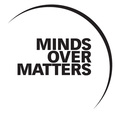Lawyer's Year Is 'Remarkable' After Revealing Mental Health Challenges
This Reed Smith lawyer went public in 2019 about his struggles with mental health, a decision that has helped address the stigma of those challenges in the legal community.
December 27, 2019 at 01:20 PM
6 minute read
 Photo: Shutterstock
Photo: Shutterstock
 The past 12 months were the most remarkable year of my life, both personally and professionally. It was also the most enriching, enlightening, eye-opening and gratifying year.
The past 12 months were the most remarkable year of my life, both personally and professionally. It was also the most enriching, enlightening, eye-opening and gratifying year.
And why is that, you may ask? You see, as the clocks turned from 2018 to 2019, only a small cohort of colleagues, family members and friends knew about my past struggles with mental health disabilities. Only a small cohort knew the real reason behind my 11-week leave of absence from work toward the end of 2017. Only a small cohort had ever heard me utter the words—or, more aptly, diagnoses—depression, anxiety and obsessive compulsive disorder.
That all changed in 2019, however, the year I decided to speak publicly and vocally about my past (and present and future for that matter). The catalyst for all of this was the February 2019 publication of an article in Law.com affiliate The American Lawyer chronicling my journey with mental health disabilities, as well as a follow-up article detailing the tremendous response I received—and continue to this day to receive—to the initial post.
These articles served as a springboard to a host of extraordinary opportunities. Opportunities, for instance, to speak about mental health at dozens of conferences, symposia, webinars and other events and programs across the globe. (Let's just say that my frequent flyer account is "on fleek." Is that something kids are still saying?)
Opportunities to meet with and implore law students—the next generation of lawyers—to meaningfully consider and take care of their mental health as they embark on their professional journeys. Opportunities to witness the legal community at large, including attorneys in both the private and public sectors, as well as academics and members of the judiciary, come together and support one another. Opportunities to work with within Reed Smith and also alongside firm clients, to develop and implement mental health and wellness programs. Opportunities to see, firsthand, the incredible achievements and strides that physically and mentally disabled attorneys have made and continue to make. Opportunities to cultivate a greater appreciation and understanding for how diversity and inclusion efforts make our profession better and stronger on so many different fronts.
 Mark Goldstein
Mark GoldsteinPerhaps most rewardingly, opportunities to meet and speak with thousands of lawyers from all corners of the profession about their own struggles with mental health issues, or the struggles of relatives or friends. I still receive phone calls and emails every single week from attorneys and other legal professionals who either stumbled across my article or heard me speak at an event. Some just want someone to listen to them without fear of being judged or ostracized. Some want guidance. Some want to know how they can help a struggling friend. All, however, want to know that they, or their loved ones, are not alone and that real, tangible support exists. And even though I am no mental health professional—something I make very clear—these are assurances I can absolutely provide.
What then, with all of these opportunities, did I learn in 2019?
- First and most certainly foremost, that this issue resonates with and hits close to home for more people than I could ever have imagined. Over the past year, I've had candid and often raw and emotional conversations with individuals from every walk of life on this issue. Judges. Senior law firm partners. Solo practitioners. General counsel. Government officials. Paralegals. Legal secretaries. First-year associates. And many, many more. The issue, therefore, calls for creating an industrywide environment where people feel comfortable acknowledging their situation, asking for help and support, and seeking treatment.
- That the very same trait that led many of us to choose law in the first place and to excel in our jobs—namely, perfectionism, type A personalities and the like—are also the same traits that, if not properly monitored, put lawyers at an acutely high risk, more so than virtually every other profession, of suffering from mental health disorders.
- That a person's outward appearance is not necessarily indicative of mental health or well being. Behind that smile or perfectly pressed three-piece suit may be serious anxieties or other "invisible" conditions.
- That ample data to supports that mentally healthy employees are beneficial for an employer's financial bottom line, attrition rates and overall morale. In other words, there is an easy business case to be made for employers to support workplace mental health initiatives.
- That mental health disorders do not discriminate against their victims based on sex, age, race, religion, sexual orientation, pay grade, title, book of business or any other characteristic or trait. Everyone is susceptible.
- That mental health disabilities are no different than physical ailments. If you should seek treatment for diabetes, chest pain or a broken bone, you should do the same for your brain. In a related vein, I have also come to appreciate that, just like physical health, everyone has mental health. It is incumbent upon us all to take care of both.
- That mental health-related questions have no place or purpose on a bar admission or judicial application.
- That we cannot have a meaningful conversation on this issue if we do not include and embrace law firm staff members, law students and others within the industry who do not hold Juris Doctor degrees.
- Buy-in from organizational leadership in any type of legal employment setting is paramount. If key leaders are on board with addressing mental health and wellness, it will almost assuredly trickle down throughout the organization.
- That it will take a proverbial village—the entire legal community—to enact real change with respect to mental health issues.
At 12:01 a.m. Jan. 1, 2019, when I was admittedly snoring away (sorry Ryan Seacrest), I could never have imagined what remarkable twists and turns the year ahead would hold. And as we turn the page on 2019, I am filled with hope that, in the next decade, we will work together to achieve even greater progress on the mental health front.
Read more: Minds Over Matters: An Examination of Mental Health in the Legal Profession
Mark S. Goldstein is in the employment practice of Reed Smith in New York. He is also a member of Law.com's Mental Health Advisory Board.
This content has been archived. It is available through our partners, LexisNexis® and Bloomberg Law.
To view this content, please continue to their sites.
Not a Lexis Subscriber?
Subscribe Now
Not a Bloomberg Law Subscriber?
Subscribe Now
NOT FOR REPRINT
© 2025 ALM Global, LLC, All Rights Reserved. Request academic re-use from www.copyright.com. All other uses, submit a request to [email protected]. For more information visit Asset & Logo Licensing.
You Might Like
View All
Empowering Your Lawyers: A Marketing Team’s Guide to Achieving Goals and Fostering Lawyer Satisfaction
9 minute read
Change Is Coming in the Trump Era. For Big Law, Change Is Already Here
6 minute read

'If the Job Is Better, You Get Better': Chief District Judge Discusses Overcoming Negative Perceptions During Q&A
Law Firms Mentioned
Trending Stories
- 1Uber Files RICO Suit Against Plaintiff-Side Firms Alleging Fraudulent Injury Claims
- 2The Law Firm Disrupted: Scrutinizing the Elephant More Than the Mouse
- 3Inherent Diminished Value Damages Unavailable to 3rd-Party Claimants, Court Says
- 4Pa. Defense Firm Sued by Client Over Ex-Eagles Player's $43.5M Med Mal Win
- 5Losses Mount at Morris Manning, but Departing Ex-Chair Stays Bullish About His Old Firm's Future
Who Got The Work
J. Brugh Lower of Gibbons has entered an appearance for industrial equipment supplier Devco Corporation in a pending trademark infringement lawsuit. The suit, accusing the defendant of selling knock-off Graco products, was filed Dec. 18 in New Jersey District Court by Rivkin Radler on behalf of Graco Inc. and Graco Minnesota. The case, assigned to U.S. District Judge Zahid N. Quraishi, is 3:24-cv-11294, Graco Inc. et al v. Devco Corporation.
Who Got The Work
Rebecca Maller-Stein and Kent A. Yalowitz of Arnold & Porter Kaye Scholer have entered their appearances for Hanaco Venture Capital and its executives, Lior Prosor and David Frankel, in a pending securities lawsuit. The action, filed on Dec. 24 in New York Southern District Court by Zell, Aron & Co. on behalf of Goldeneye Advisors, accuses the defendants of negligently and fraudulently managing the plaintiff's $1 million investment. The case, assigned to U.S. District Judge Vernon S. Broderick, is 1:24-cv-09918, Goldeneye Advisors, LLC v. Hanaco Venture Capital, Ltd. et al.
Who Got The Work
Attorneys from A&O Shearman has stepped in as defense counsel for Toronto-Dominion Bank and other defendants in a pending securities class action. The suit, filed Dec. 11 in New York Southern District Court by Bleichmar Fonti & Auld, accuses the defendants of concealing the bank's 'pervasive' deficiencies in regards to its compliance with the Bank Secrecy Act and the quality of its anti-money laundering controls. The case, assigned to U.S. District Judge Arun Subramanian, is 1:24-cv-09445, Gonzalez v. The Toronto-Dominion Bank et al.
Who Got The Work
Crown Castle International, a Pennsylvania company providing shared communications infrastructure, has turned to Luke D. Wolf of Gordon Rees Scully Mansukhani to fend off a pending breach-of-contract lawsuit. The court action, filed Nov. 25 in Michigan Eastern District Court by Hooper Hathaway PC on behalf of The Town Residences LLC, accuses Crown Castle of failing to transfer approximately $30,000 in utility payments from T-Mobile in breach of a roof-top lease and assignment agreement. The case, assigned to U.S. District Judge Susan K. Declercq, is 2:24-cv-13131, The Town Residences LLC v. T-Mobile US, Inc. et al.
Who Got The Work
Wilfred P. Coronato and Daniel M. Schwartz of McCarter & English have stepped in as defense counsel to Electrolux Home Products Inc. in a pending product liability lawsuit. The court action, filed Nov. 26 in New York Eastern District Court by Poulos Lopiccolo PC and Nagel Rice LLP on behalf of David Stern, alleges that the defendant's refrigerators’ drawers and shelving repeatedly break and fall apart within months after purchase. The case, assigned to U.S. District Judge Joan M. Azrack, is 2:24-cv-08204, Stern v. Electrolux Home Products, Inc.
Featured Firms
Law Offices of Gary Martin Hays & Associates, P.C.
(470) 294-1674
Law Offices of Mark E. Salomone
(857) 444-6468
Smith & Hassler
(713) 739-1250








